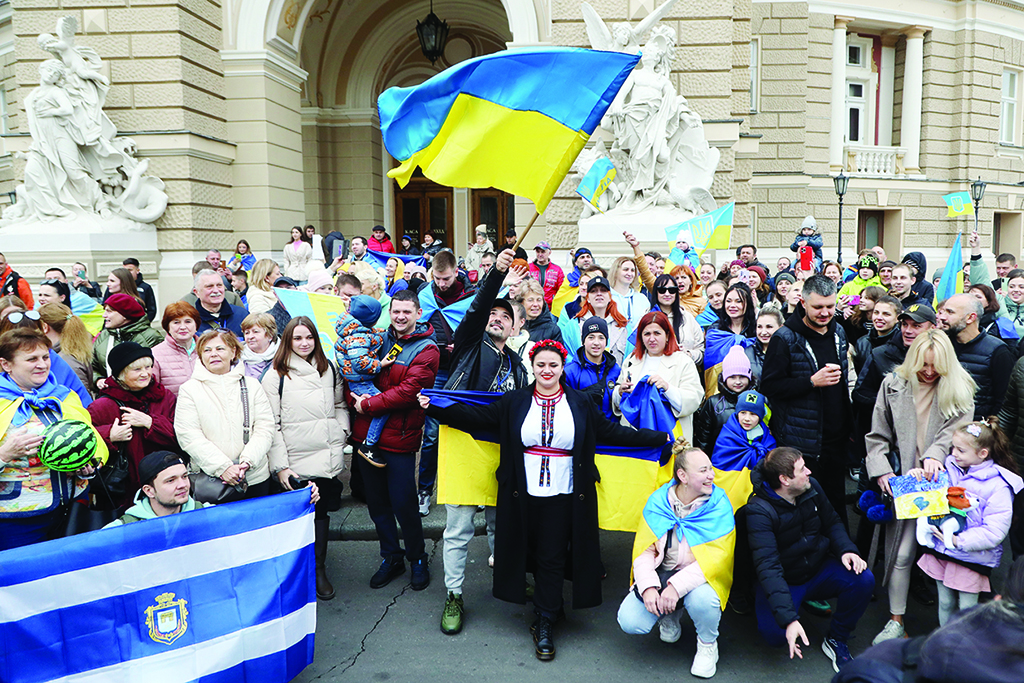WARSAW: Smiles, flowers from local people and mines planted by the Russians greeted Ukrainian soldiers advancing on Kherson, a major city in the south liberated from Moscow's forces on Friday. "We see attractive, smiling faces, flowers, embroidered towels which we display on our vehicles," said Andriy Zholob, the commander of a medical unit currently about 50 kilometers (30 miles) from Kherson.
"We see children running to meet us and greeting us," he told AFP in Warsaw by phone. Zholob is from the western city of Lviv and worked as an orthopedist before the Russian invasion in February. Ukraine's army announced it had entered Kherson after Russian forces withdrew-nine months after Moscow's forces captured the regional capital. The soldier acknowledged that in the region of southern Ukraine, "there are probably a certain number of locals" who regret the Russian withdrawal-adding that he was relieved not to have met any.
Another Ukrainian soldier who had just entered Kherson city showed AFP videos of the approach to the town. In one, a young woman shouts "Glory to Ukraine!" as she blows kisses towards troops.
In another clip, dozens of civilians near a bus stop adorned with the blue and yellow national colors greeted the troops' vehicle with applause, flowers and cries of "our rescuers!" "It's like that everywhere," said the soldier, who cannot be identified for security reasons.
'Towards victory'
"There is a lot of affection... we are advancing towards victory, towards the Dniepr river, towards the town of Kherson," said Zholob, whose brigade began advancing on Kherson last week after having been camped out for several months. They advanced slowly at first before surging forward in less than 48 hours. After four months on the southern front, his army's rapid success caught him by surprise.
"Our enemy is skilful and dangerous. The advance we see now and the escape of the occupants to the Dniepr was really a surprise for all of us," said Zholob. In recent months, "it was a war of positions, with assaults, artillery duels. It was really hard, bloody, with a lot of losses and very exhausting".
He said he saw "a lot of armaments of the occupier burned, a lot of local agricultural equipment destroyed and marked with Z signs", the symbol of the Russian invasion, as well as homes destroyed by the fighting. Zholob said that while he feels joyful, he has kept up his guard and remains "suspicious", as the Ukrainian authorities have repeatedly warned fearing booby-traps left behind by Russian forces. The danger of mines planted by the Russians before their departure or unexploded munitions that can explode at any moment is now omnipresent, he said. -AFP











